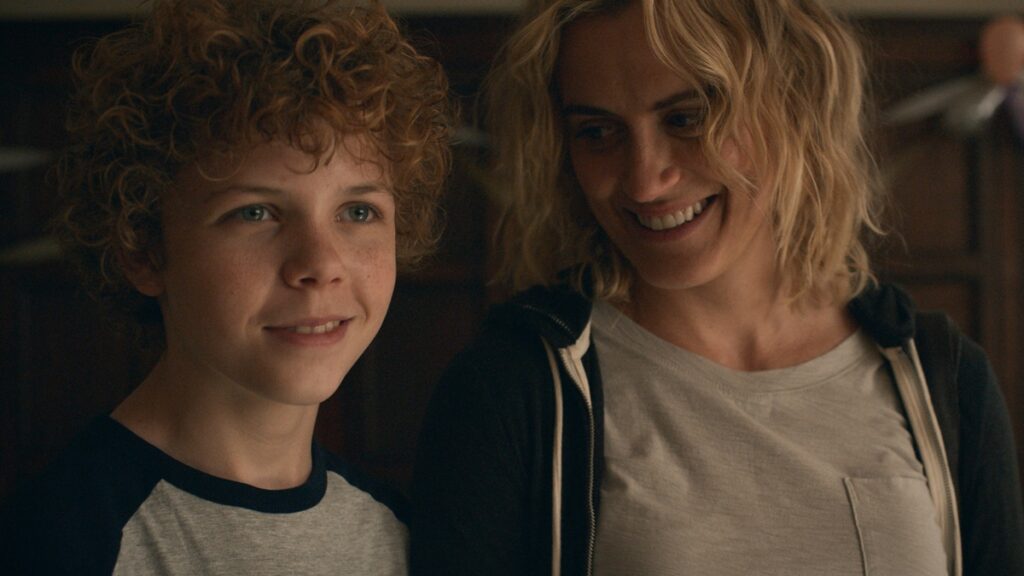Read also:
How to Watch FX Live Without CableHow To Watch AMC Without CableHow to Watch ABC Without CableHow to Watch Paramount Network Without CableAppleTV+’s new plane crash drama goes big and it pays off.
“Emotionally manipulative” is a criticism of television and film I’ve always struggled with evaluating. If it is doing its job, any show or movie should emotionally manipulate you, at least a bit. It’s why you can go into a dark cineplex feeling a bit in the grip of the blahs and emerge high on the story of Nic Cage and his best swine friend. So know, when I declare Dear Edward “emotionally manipulative as hell,” that’s not necessarily a bad thing.
It is the kind of story created with emotional manipulation baked into its bones. Dear Edward follows the aftermath of a plane crash in a small town outside of Colorado. Nearly two hundred passengers die in the wreck, with only the titular Edward (Colin O’Brien) surviving. The boy, all of 12 years old, loses his parents (Brian d’Arcy James and Robin Tunney) and his older brother Jordan (Maxwell Jenkins). Declared the “Miracle Boy,” he is sent to live with his mom’s younger sister Lacey (Taylor Schilling) and her husband, John (Carter Hudson).

Show creator Jason Katims—previously of Friday Night Lights and As We See It—makes one immediate and wise departure from the novel by Ann Napolitano. Rather than center the story entirely on Edward with interstitials about the other passengers, he organizes the series around a support group for those who lost people in the crash. This gives the show a larger pool of interpersonal dynamics to explore and makes for smoother storytelling. What is so effective in the source material would likely have felt disjointed on television. Thus, Katims’ adaptation smartly sidesteps it while creating more dramatic potential, not less.
With that dramatic potential comes chaos. The series is consistently BIG. Big emotions, big reactions. The dial doesn’t stay at eleven, but it does get turned up to there at least once an episode. The closest thing that approximates the tone and emotional valence of the endeavor is This Is Us as a maximalist drama. It hits every cliché one can imagine—hidden sexualities, affairs, newly discovered loves, pregnancies, lost children, intentional property damage, secret crimes, dire financial circumstances, and so on. And it hits them hard.
So is Dear Edward emotionally manipulative? Oh heavens, yes.
All of that brings us back to emotional manipulation. Prepare to feel rung out like a sponge. Each episode is a tearjerker. In different hands, it could be one of the most maudlin affairs ever committed to television. The players, however, find a way to bring humanity to the whirling dervish of plotlines. Schilling mines Lacey’s prior traumas and resentments to give Edward’s aunt a rigid brittleness that keeps her miles away from the trap of being a sainted survivor. Connie Britton goes all in as Dee Dee, a New Jersey housewife who finds her entire understanding of her life rocked. The way she puts Dee Dee’s complicated and frequently unpleasant feelings on the screen is admirable and ends up making her a far more sympathetic character than you’d otherwise expect.
Other standouts include Amy Forsyth as Linda, a recently pregnant woman who lost her boyfriend on the flight, and Adriana (Anna Uzele) as a politician’s granddaughter running to fill Grandma’s seat as she starts to form a surrogate family with another member of the grief group Kojo (Idris DeBrand) and his niece. In general, though, everyone acquits themselves well. The material is heavy. There’s a constant risk of it all becoming melodramatic sludge. Nonetheless, the actors keep it on the rails.

If anything, Dear Edward operates better when overclocked. When it goes for realism, it frequently becomes repetitive and inert. For instance, Edward develops a coping skill of running from overwhelming emotions or social situations. This accurately represents how someone his age might react to stressors after a terrible trauma, including repeated use of the inappropriate skill. However, from a dramatic standpoint, every subsequent time he takes off, the move loses tension. It may be accurate to real life, but this is not a series that benefits from striving for literal verisimilitude.
Another demerit goes to how the season wraps up. This is, perhaps, a personal bias, but the number of television series based on books that don’t wrap up their plot in a single season is becoming an increasing source of frustration. The current streaming landscape with the last-minute cancellations and series abruptly dumped only heightens my annoyance.
So is Dear Edward emotionally manipulative? Oh heavens, yes. But it is the kind of manipulation that this critic is here for: naked, messy, and maximalist. Show up for your deeply cathartic weekly big cry.
Dear Edward opens its post office box beginning on February 3 on AppleTV+.